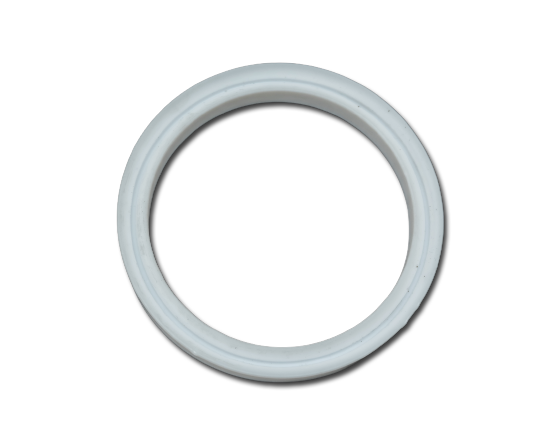We are Manufacturer, Supplier, Exporter of PTFE (Polytetrafluroethylene) U Seals, PTFE U Seals, PTFE U-cup seals, PTFE U-Ring Seals from M.I.D.C., Ahmednagar, Maharashtra, India.
A PTFE U-seal, also known as a PTFE U-cup seal or PTFE U-ring seal, is a specialized sealing component designed to provide effective sealing in hydraulic and pneumatic systems. It is commonly used in reciprocating or dynamic applications where a reliable and leak-free seal is required. PTFE is an ideal material for sealing applications due to its self-lubricating nature and resistance to wear and degradation.
The U-shaped design of the seal allows for easy installation and ensures efficient sealing in both directions. The flexible lip of the U-seal conforms to the mating surface, creating a tight seal and preventing the leakage of fluids or gases.

PTFE exhibits excellent resistance to a wide range of chemicals, making it suitable for use in various industries and applications.
PTFE's low coefficient of friction ensures smooth operation, minimizes wear, and reduces energy consumption.
PTFE can withstand high temperatures without losing its sealing properties, providing reliable performance in demanding environments.
PTFE has inherent lubricating properties, reducing friction and extending the service life of the seal.
PTFE U-seals can be used in hydraulic and pneumatic systems, accommodating reciprocating or dynamic motions. They are commonly used in cylinders, actuators, pumps, valves, and other equipment.
PTFE U-seals are available in various sizes and configurations to fit different shaft or rod diameters. They can be customized to meet specific application requirements, such as pressure ratings, temperature ranges, and compatibility with different fluids or gases.

